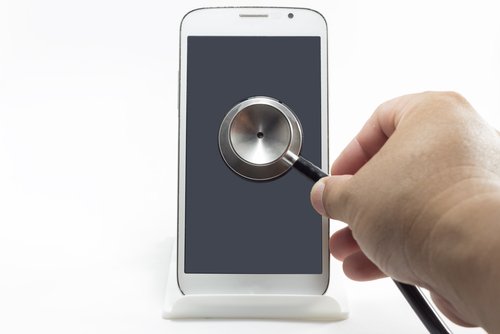Patients with inflammatory bowel disease (IBD) are open to engaging with electronic health (eHealth) technologies as potential solutions for better disease self-management. This suggests that eHealth could be a way to improve communications between patients and IBD clinicians, particularly if eHealth tools are designed with patient input, a recent study found.
In recent decades, technology developments have aided the field of medicine, including eHealth technologies. These are designed to provide patients with new tools that inform, equip, and encourage engagement in disease self-management. They also can help ease the burdens of outpatient services associated with IBD.
But eHealth technology has faced setbacks in usage, particularly in terms of high attrition rates, which limit its implementation in clinical practice. To address this concern, patients should be involved in the process of developing these technologies to provide insight into the most relevant and effective tools required.
In the study titled, “eHealth for inflammatory bowel disease self-management – the patient perspective,” the authors evaluated how IBD patients perceived the usefulness of eHealth solutions for disease management, as well as whether or not they would continue using these types of solutions. The study was published in the Scandinavian Journal of Gastroenterology.
A total of 15 IBD patients and three parents participated in a discussion forum. Of the 18 participants, 16 showed enthusiasm for the use of new technologies to assist disease self-management, while two participants preferred traditional face-to-face consultations.
Some participants raised concerns about eHealth solutions, including internet security, confidentiality of personal information, the possibility of reduced quality of care, and less quality time with doctors.
The study included an online survey in which 86 patients with IBD participated. Most (98.8%) said they are willing try a form of information and communications technology that could help them manage their disease. Two of the most preferred platforms were smartphone apps and internet websites. Despite overall support by these patients for eHealth technologies, only nine participants said they currently use an app to help manage their IBD.
“Patients are supportive of eHealth solutions as a strategy to address their need for better access to care including disease information, communication methods and management tools for IBD,” the authors wrote.
Surveyed patients said the ideal eHealth resource for IBD should provide convenience for patients, improve communications between patients and healthcare providers, increase patient control over their condition, optimize disease self-monitoring, and improve adherence to treatment.
“This study provides an evidence base for the design specifications that ought to be considered in future eHealth solutions for IBD,” the authors wrote.
“Further research using controlled interventions and prospective cohort studies are required to ensure that eHealth tools are relevant, effective and of practical use to patients to mitigate the risk of attrition associated with their use,” the authors added.

